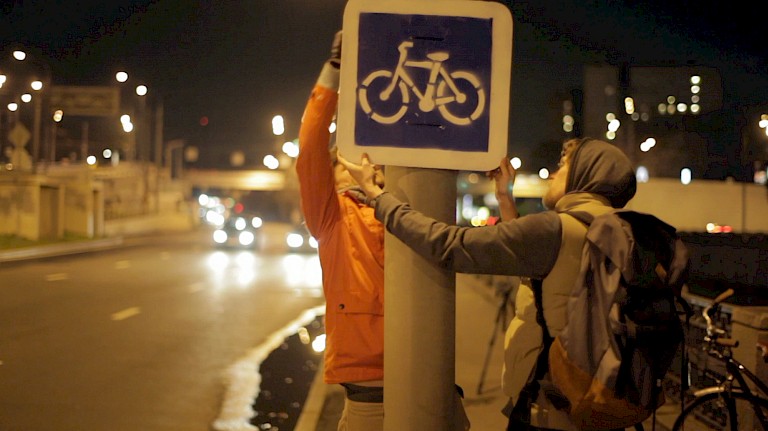 Edit
Edit
Overview of Partizaning Movement
Partizaning is an urban activist movement that emerged in Moscow in 2011, initiated by a collective of artists and researchers. The term “Partizaning” derives from the Russian word for “guerrilla,” reflecting the movement’s approach to urban transformation through unsanctioned and participatory art practices. The movement focuses on leveraging art as a tool for social change, engaging citizens in the re-imagination and improvement of their urban environments.
Key Objectives and Activities
Partizaning aims to challenge traditional urban planning methods by promoting DIY (Do It Yourself) culture and grassroots participation. The collective’s activities include:
-
Creating Public Installations: The group has implemented various projects such as pedestrian crossings, bike lanes, and public benches. These installations are often made with minimal resources and highlight community involvement. For example, benches are labeled with messages encouraging citizens to use them freely, emphasizing that they were created by local residents without municipal funding[1][2].
-
Public Mailbox Projects: Partizaning has introduced mailboxes in several districts, inviting residents to submit suggestions for urban improvements. This initiative fosters communication between citizens and local authorities, aiming to address community concerns collaboratively[1][2].
-
Artistic Interventions: The collective employs artistic interventions in public spaces to stimulate dialogue about urban issues. These actions blur the lines between art, activism, and everyday life, encouraging citizens to take an active role in shaping their environment[2][3].
Context and Impact
The movement reflects a broader trend of tactical urbanism and grassroots activism seen globally, particularly as a response to inadequate government services and neoliberal urban development practices. Partizaning seeks to empower residents by transforming them into active stakeholders in their communities, advocating for a vision of cities built by and for the people[2][4].
By documenting examples of art-based activism worldwide through its website, Partizaning serves as an inspiration for similar initiatives in other cities, promoting the idea that collective action can lead to meaningful urban change[4][6].
Overall, Partizaning represents a significant shift towards participatory urbanism in Russia, where artists and citizens collaborate to reclaim public spaces and foster community engagement in urban planning processes.
Citations
[1] https://www.instituteforpublicart.org/case-studies/partizaning/ [2] https://www.urbanista.org/issues/local-eyes/features/partizaning-participatory-art-research-and-creative-urban-activism [3] https://www.cappnetwork.com/capp-project/partizaning-maunula/ [4] http://igor-ponosov.ru/english/?p=1000 [5] https://www.m-cult.org/productions/partizaning-maunula [6] https://ressource0.fr/partizaning/ [7] https://aliakbarmehta.com/content/maunula-partizaning-maunula/ [8] https://www.urbanpresents.net/en/2024/10/igor-ponosov-rus-artist-curator-researcher-author-and-publisher-focused-on-urban-art-since-20-years/
Movement founded by a group of street art activists in Moscow in beginning of 10s with its goal is to reflect and promote the idea of art-based DIY activism aimed at rethinking, restructuring and improving urban environments and communities, and to explore the role of art as a practical tool for inclusive city regeneration and social activism, to provide documentation and analysis of the role of art in reshaping public spaces, cities and human interactions—globally [1].

Russian tank in Amsterdam as part of Prtizaning Projects
Photo: Make / Prtizaning
## Сonspectus
| Year | City |
|---|---|
| 2017 | Moscow [2] |

Userpic of Partizaning movement at its Facebook page
